censorship
Latest

The internet war on sex is here
During the Great Internet Sex War, that began in the United States during its Facebook Era, people were forced to stockpile their porn. Lube was bought by the drum and hidden in bunkers, alongside vibrators and air-gapped computers holding valuable troves of accurate, non judgemental sex information. Gimp suits were stored upright, oiled, and ready for doomsday's call. Explicit gifs became a black market commodity, and there were rumors of a Thunderdome ruled by cam girls. Every sexual identity, except the singular one deemed safe by the corporations, went into hiding. Fear prevented even the mere mention of sexual pleasure on the networks and in communications.
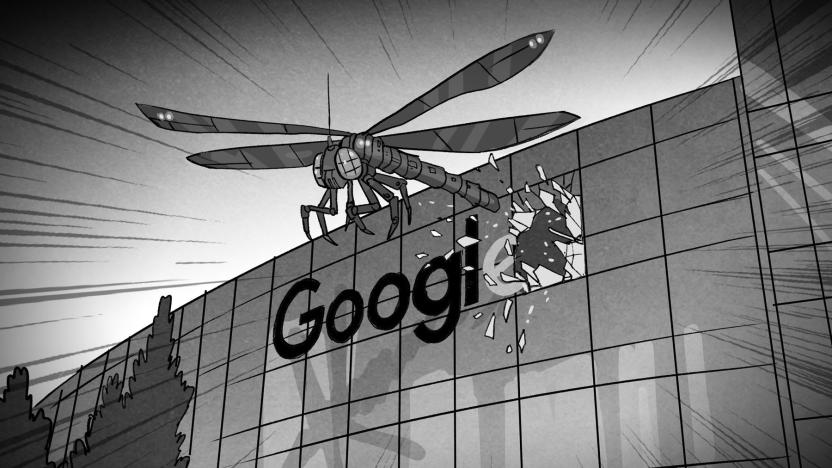
Google’s China search engine drama
The first time many of us heard about China's use of facial recognition on jaywalkers was just this week when a prominent Chinese businesswoman was publicly "named and shamed" for improper street crossing. Turns out, she wasn't even there: China's terrifyingly over-the-top use of tech for citizen surveillance made a mistake. The AI system identified Dong Mingzhu's face from a bus advertisement for her company's products.
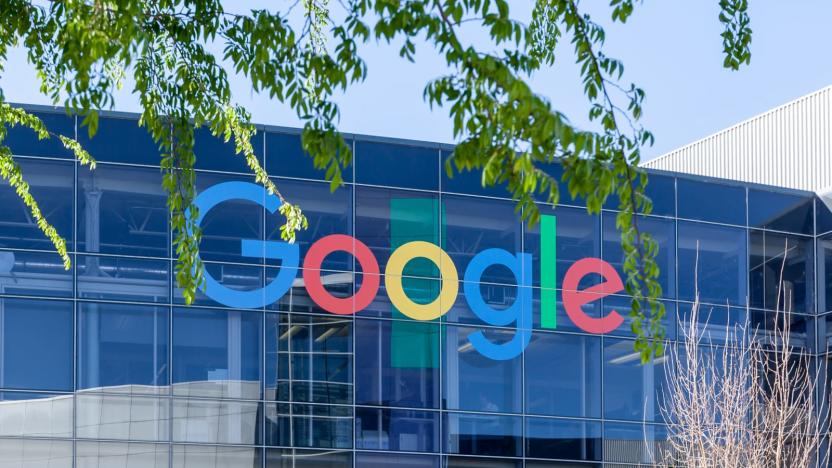
Google employees plan walkout over censored Chinese search engine
Just weeks after Google employees walked out of offices to protest the way the company dealt with claims of sexual misconduct, Google is bracing itself for another worldwide protest. This time, it's over Google's ominous Project Dragonfly, and human rights organization Amnesty International is throwing its whole weight behind it.
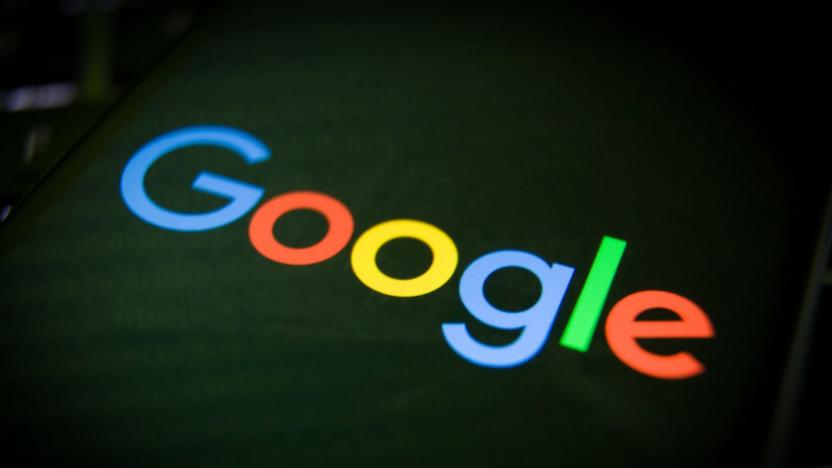
Russia may fine Google for failing to remove banned websites
Russia's internet watchdog, Roskomnadzor, is looking to fine Google for failing to remove banned websites from its search results. The agency has filed charges against the company and Google could face a fine of up to RUB 700,000 ($10,450) if it's found to be in violation of Russia's laws. The regulator is also seeking to have Google join a state registry that lists websites banned by the country.

Google confirms secret Dragonfly project, but won’t say what it is
Representatives from a number of major tech companies appeared before the US Senate Committee on Commerce, Energy and Transportation today, discussing data privacy and concerns over consumer protection. Google sent its new chief privacy officer, Keith Enright, to the hearing, who was questioned multiple times over rumors that Google is working on a censored search engine for China. VentureBeat reports that Enright confirmed a project codenamed Dragonfly, though he stopped short of discussing what that project entailed. "I am not clear on the contours of what is in scope or out of scope for that project," Enright told Senator Ted Cruz (R-TX).
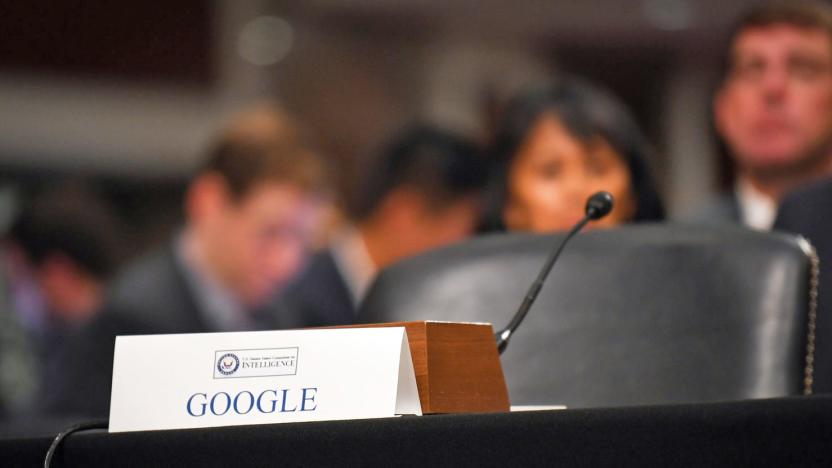
Google CEO Sundar Pichai will meet US officials to discuss censorship
Sundar Pichai, the CEO of Google, will appear at a private meeting with Republican lawmakers on the Capitol Hill on Friday, September 28th, following recent allegations that the company had previously censored search results. In addition to that, Pichai is scheduled to attend a public hearing at a House Judiciary Committee in November after the midterm elections.

Google's rumored 'Dragonfly' search prototype tied data to phone numbers
While Google employees push back against and lawmakers ask questions about a rumored version of its search engine for China -- with censorship and blacklists for terms like human rights, democracy or protest built-in -- The Intercept revealed more details about how it might actually work. According to its sources, a "Dragonfly" prototype was built that worked similar to many online services in China, with an Android app that linked search activity to a phone number. The Chinese government has pushed for services like WeChat and Weibo to tie ID cards or phone numbers to their accounts before, while also attempting to make sure the large mobile carriers only sell SIMs to customers under their real names. Still, a Human Rights Watch member points out that linking search activity could make it that much harder for anyone to avoid government surveillance. Also mentioned is the idea that it would operate as a joint venture with a company in China, and host its data on servers there that leads some to worry it could be accessed by the authorities. Finally, there's a rumored customization for the source of weather and air pollution data, which The Intercept said has been manipulated before by the government.

Congress wants to know if Google plans to relaunch search in China
A cross-party group of congresspeople have asked Google if it plans to launch a censored version of its search engine in China, as has been rumored. In their letter to Google, the 16 Democrats and Republicans wrote they had "serious concerns" over the possible move, according to Reuters. A group of senators, including Marco Rubio and Ron Wyden, previously sought answers from Google over its reported return to China.

YouTube pulls Russian opposition ads ahead of elections
YouTube is no stranger to pulling videos based on their content, but now it also has to worry about when a video is available. The Google-owned service has removed ads from Russian opposition leader Alexei Navalny following officials' claims that the videos would violate a campaign silence law by remaining available ahead of regional governor elections on September 9th. In a statement, YouTube's Russian branch said it responded to "all justified appeals from state bodies" and said advertisers had to honor local laws. Whether or not the law was an issue is another matter.
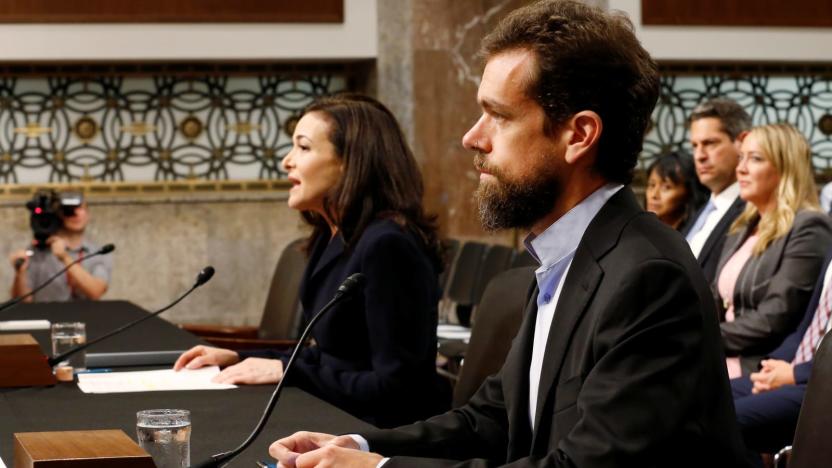
Jeff Sessions worries social networks are 'intentionally stifling' speech
You can add another voice to the chorus of right-wing figures alleging (or insinuating) that internet giants may be biased against conservatives. The Justice Department has confirmed to TechCrunch that US Attorney General Jeff Sessions is meeting with state AGs later in September to talk about a "growing concern" that social networks might be hurting competition and "intentionally stifling the free exchange of ideas." The DOJ didn't say whether Sessions was calling for regulation or formally investigating the companies' practices.

Egypt signs censorship-focused cybercrime bill into law
Egypt's increasingly strict regulation of internet use just became that much harsher. President Abdel Fattah al-Sisi has signed a cybercrime law that makes it illegal to run and even visit sites considered threats to the country's economy and national security. If convicted, operators and users have to pay fines or, in some cases, face prison sentences.

Google employees push back on censored China search engine (update)
Employees at Google are protesting the company's work on a censored search engine for China, the New York Times reports, signing a letter that calls for more transparency and questions the move's ethics. Reports of the search engine surfaced earlier this month, leaving many to wonder how the company could justify it after publicly pulling its Chinese search engine in 2010 due to the country's censorship practices. The letter, which is circulating on Google's internal communications system, has been signed by approximately 1,000 employees, according to the New York Times' sources.

Germany removes blanket ban on Nazi imagery in games
Before video games with swastikas and other Nazi symbols can be released in Germany, they have to go through some major edits to censor those images. Every Nazi eagle and swastika -- and even Adolf Hitler's moustache -- in the Wolfenstein series had to be scrubbed, for instance, even though Nazis are the villains in the game. That will no longer be the case going forward, now that German authorities have lifted the blanket ban on Nazi imagery in video games. Each title will now be assessed on a case-by-case basis by the country's Entertainment Software Self-Regulation Body (USK) and will be judged similarly to books and films.
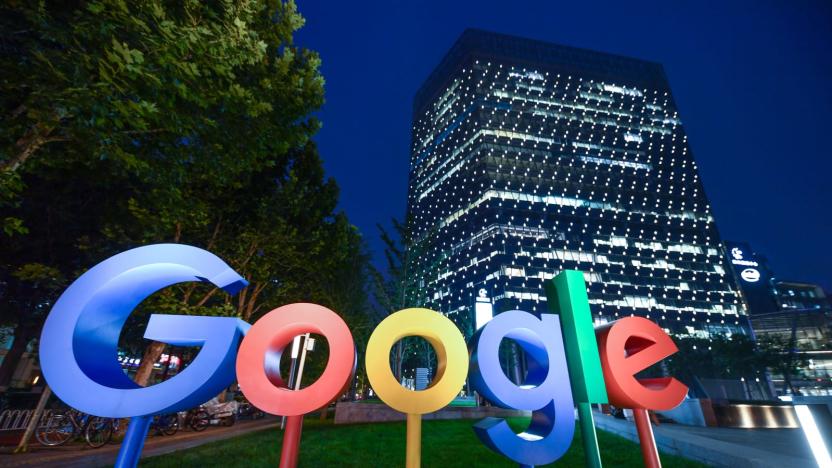
Google tracked banned words to refine rumored China search engine
If Google is planning a search engine for China, how is it planning to obey the country's strict censorship laws from day one? By getting some practice in first, apparently. The Intercept has obtained documents reportedly showing that Google has been using 265.com, a hybrid information and search portal it acquired in 2008, as a "honeypot" that would help it develop a blacklist for search terms in China. Google has supposedly been collecting info about search queries, which technically redirect to Baidu, to see if they would be censored.

Twitter doesn’t have the spine to ban Alex Jones
It seems like every major tech company has had enough of Alex Jones, the conspiracy theorist and propagandist behind the controversial far-right site InfoWars. Well, almost everyone. The obvious holdout: Twitter. On Monday, Twitter said InfoWars and its associated accounts, including Jones', were not currently violating its rules. And last night its CEO and co-founder, Jack Dorsey, tried to explain the decision. He said Twitter is going to "hold Jones to the same standard we hold to every account," but that it isn't "taking one-off actions to make us feel good in the short term, and adding fuel to new conspiracy theories."

The internet’s slow turn against Alex Jones and InfoWars
Tech companies are finally starting to take action on Alex Jones, the man who called the Sandy Hook school shooting a hoax and said the Democrats were planning a second civil war, for spreading his hateful conspiracy nonsense on the internet. It all began a couple of weeks ago when YouTube removed multiple videos from his channel for hate speech, a move that was followed by Facebook blocking him from posting on his personal page for 30 days. Since then, Spotify has taken down multiple episodes of Alex Jones' podcast, citing violations of its rules against hate speech, while Stitcher and Apple have gone as far as completely removing InfoWars shows. And now Facebook and YouTube have outright banned him and his InfoWars pages. Although things seem to have come to a head just recently, the battle between the InfoWars creator and tech firms has actually been brewing for months. Here's a timeline of the most important events leading up to today, when it seems that tech companies have decided that enough is enough.
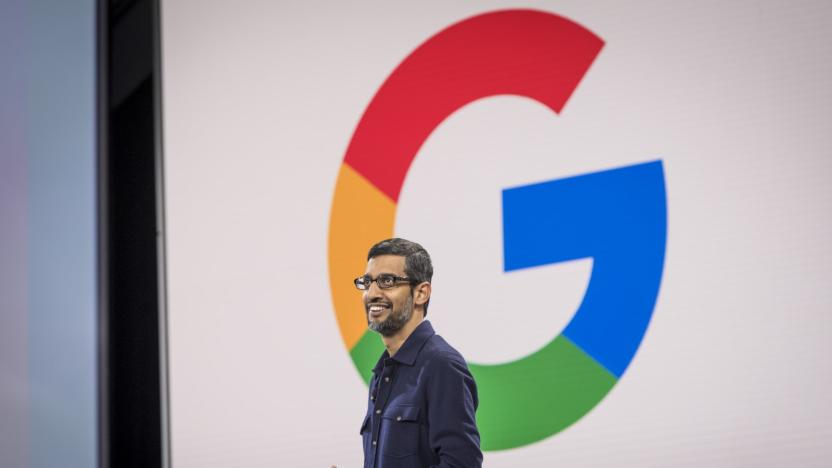
Google is reportedly working on a censored search engine for China
China's relationship with Google is fractious at best, but it's no secret that the search giant wants to make inroads in what is a largely untapped market. However, its latest alleged plan could send tech's political sphere into a tailspin. According to The Intercept, Google is working on a censored version of its search engine for the country -- one which will blacklist websites and search terms about human rights, democracy, religion and protest.
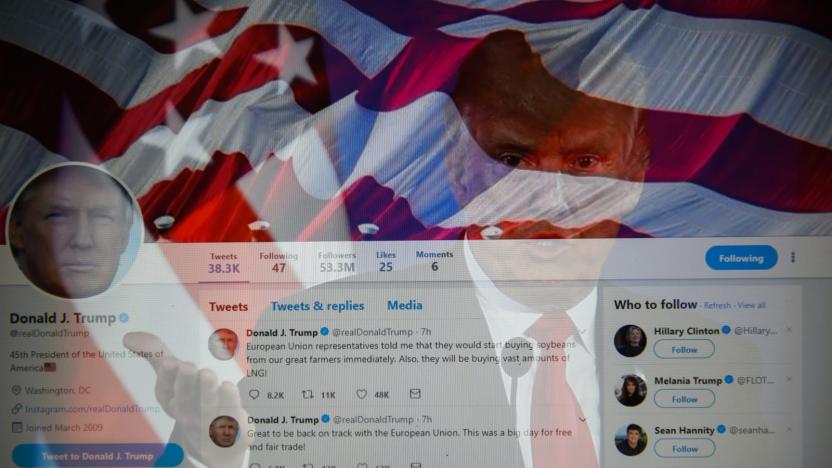
Why are Trump and sex workers angry about shadow banning?
On Thursday morning, United States President Donald Trump tweeted about how Twitter was "shadow banning" prominent republicans, presumably after reading reports that it wasn't auto-suggesting the names of members of his party when people searched for them on its app. "Not good," Trump said. "We will look into this discriminatory and illegal practice at once! Many complaints." But, while some people may appreciate what Twitter is doing, the company says this wasn't done on purpose -- it was simply a side effect of a change it made back in May aimed at cleaning up the platform.
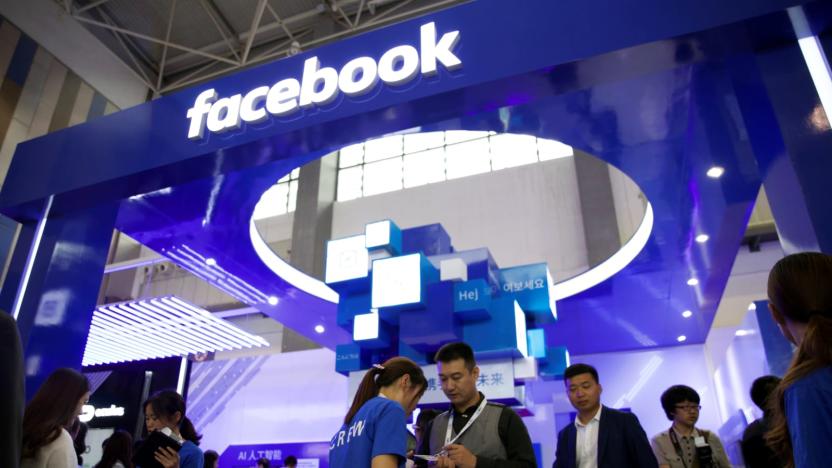
China pulls approval for Facebook startup incubator
So much for Facebook making inroads into China. Mere hours after regulators gave Facebook permission to open a startup incubator in the province of Zhejiang, the approval has disappeared -- and a New York Times source claims officials have formally withdrawn that approval. Reportedly, the country's Cyberspace Administration was "angry" that Zhejiang officials hadn't consulted it in earnest before giving Facebook the go-ahead.

Venezuela's largest ISP blocks Tor
Venezuelans have been relying on tools like Tor to access news sources, including local outlets like El Nacional and international ones like CNN en Español, after the government banned them in the country. Unfortunately, they're going to have to work a little bit harder to circumvent government censorship -- according to a report by human rights non-profit group Access Now, the largest ISP in the country, which just happened to be owned by the government, has blocked the software. Previously, people could simply change their DNS to access censored information online, but using Tor or VPN has become a necessity to get around the most recent bans.








